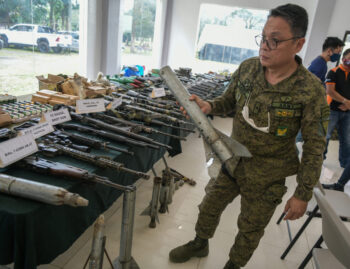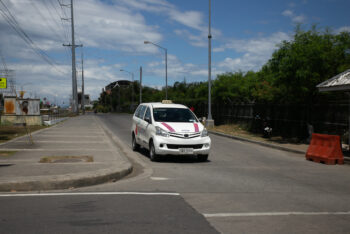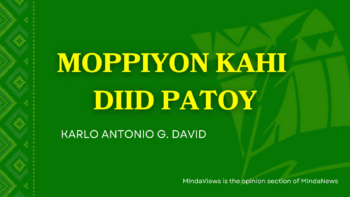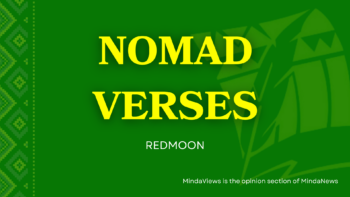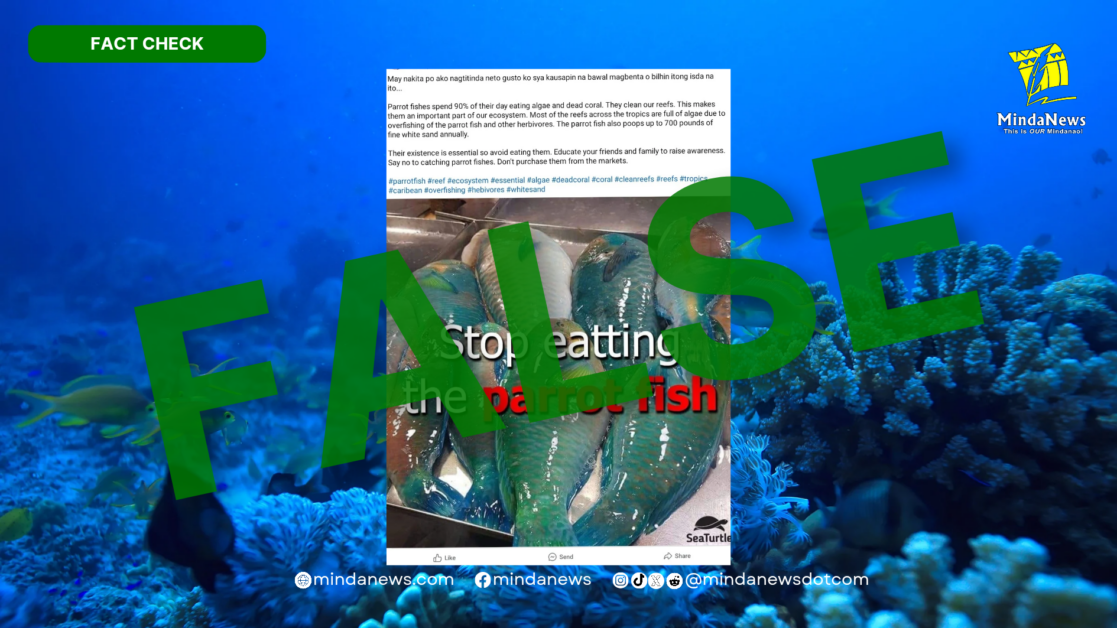
MindaNews fact-checked a Facebook claim being circulated anew that the catching and selling of parrotfish in the Philippines is banned. The post is false, as there is no such law in the country.
A Facebook post about parrotfish that went viral two years ago has been shared online anew.
In an item that she posted last March 27, 2022 and accompanied by an image of parrotfish (locally known as molmol or loro), Facebook user Weng Rct Taneo said:
“May nakita po ako nagtitinda neto gusto ko sya kausapin na bawal magbenta o bilhin itong isda na ito…(I saw somebody selling this, I wanted to tell him it’s forbidden to either sell or buy this fish)
“Parrot fishes spend 90% of their day eating algae and dead coral. They clean our reefs. This makes them an important part of our ecosystem. Most of the reefs across the tropics are full of algae due to overfishing of the parrot fish and other herbivores. The parrot fish also poops up to 700 pounds of fine white sand annually.
“Their existence is essential so avoid eating them. Educate your friends and family to raise awareness. Say no to catching parrot fishes. Don’t purchase them from the markets.”
As of April 12, the post has generated 38,000 reactions and 88,000 shares.
The post, which is being shared online anew, lacks context, and the claim that catching and selling parrotfish is banned is false, as there is no such a national law in the Philippines.
In a March 2021 Manila Bulletin article about the subject, writer Yvette Tan, quoting scientists, warned about the misinformation being spread about the conservation status of parrotfishes and the danger it poses on fisherfolk:
“Parrotfishes are found under the Family Labridae. They were formerly classified as Family Scaridae, but this has since been corrected. They are now considered as a tribe in the Family Labridae together with wrasses (Cheilini and Labrini). Found in tropical waters, parrotfishes are key components of coral reef ecosystems because of their roles in herbivory and reef bioerosion.
“Some species are considered endangered in the Caribbean. This led to an information campaign which has gotten international coverage. This is probably what prompted well-meaning dive shop owners in the Philippines to take it upon themselves to protect local parrotfish as well. There’s just one problem: they aren’t endangered, and it’s actually legal to catch them.”
Maybelle Fortaleza, a University Research Associate for Coral Reef Resiliency and Ecology Studies Laboratory in UP Mindanao, was quoted in the same article as saying:
“Honestly, I have no idea what their intentions are. I really dislike how these dive shops in the PH owned or co-owned by foreigners are trying to explain situations in the Philippines as if they really worked on the ground. I would like to emphasize that this is not limited to dive shops/dive shop owners. Anyone who is misinformed but has a large platform can cause equal harm to fisherfolk communities.
“It’s hard for us local scientists to beat misinformation especially when 1) these Facebook pages have stronger and wider reach and that 2) their page admins choose to ignore our comments, even private messages. This is harmful because if they frame the situation on conservation of parrotfishes, they become unaware of the consequences simply because they are not directly affected by it. What we wanted to say is that the 1) ‘facts’ they were spreading about parrotfishes is inaccurate and outdated and that 2) saving the parrotfishes is not the panacea to the current climate/environmental crisis.”
“The bumphead parrotfish, Bolbometopon muricatum is listed as Vulnerable in the IUCN Red List of Threatened Species. Fishermen are aware they are not allowed to catch and/or sell this species. The rest of the parrotfish species are listed in the IUCN as Least Concern. This only means more scientific studies are needed in order to elevate their conservation status and proceed with proper management measures if needed,” Fortaleza added.
Section 102 of Republic Act 10654 (An Act to Prevent, Deter and Eliminate Illegal, Unreported and Unreported Fishing), which amended Republic Act 8550 (The Philippine Fisheries Code of 1998) states: It shall be unlawful to fish or take, catch, gather, sell, purchase, possess, transport, export, forward or ship out aquatic species listed in Appendix I of the Convention on the International Trade in Endangered Species of Wild Flora and Fauna (CITES), or those categorized by the International Union for Conservation of Nature and Natural Resources (IUCN) as threatened and determined by the Department as such.
Department refers to the Department of Agriculture.
In an article, Gregg Yan, executive director of Best Alternatives, an environmental nonprofit group, also debunked the information being spread around that without parrotfish, coral reefs will wither and die.
“This might be so if parrotfish dined purely on fast-growing hair algae, but as above, they mostly target cyanobacteria growing on reef surfaces,” he said, adding, “Many other grazers do a better job at keeping visible algae from choking off coral reefs—like rabbitfish, damselfish and most especially surgeonfish, something I investigated in the Tubbataha Reefs in 2013.”
“A 2015 study by Dr. Angel Alcala and other scientists found no significant correlation between the presence of parrotfish, hard coral cover and algae,” he said.
The late Alcala, a marine biologist, served as environment secretary under the Ramos administration.
“A recent review of studies around the globe concluded that there’s almost no empirical support for the idea that protecting parrotfish prevents coral reef decline,” Yan quoted Dr. Rene Abesamis, a marine scientist, as saying.
Abesamis added: “These notions can distract us from addressing the true drivers of coral reef decline, such as siltation, pollution, destructive fishing practices and climate change.”
As with all our other reports, MindaNews welcomes leads or suggestions from the public to potential fact-check stories. (H. Marcos C. Mordeno / MindaNews)




